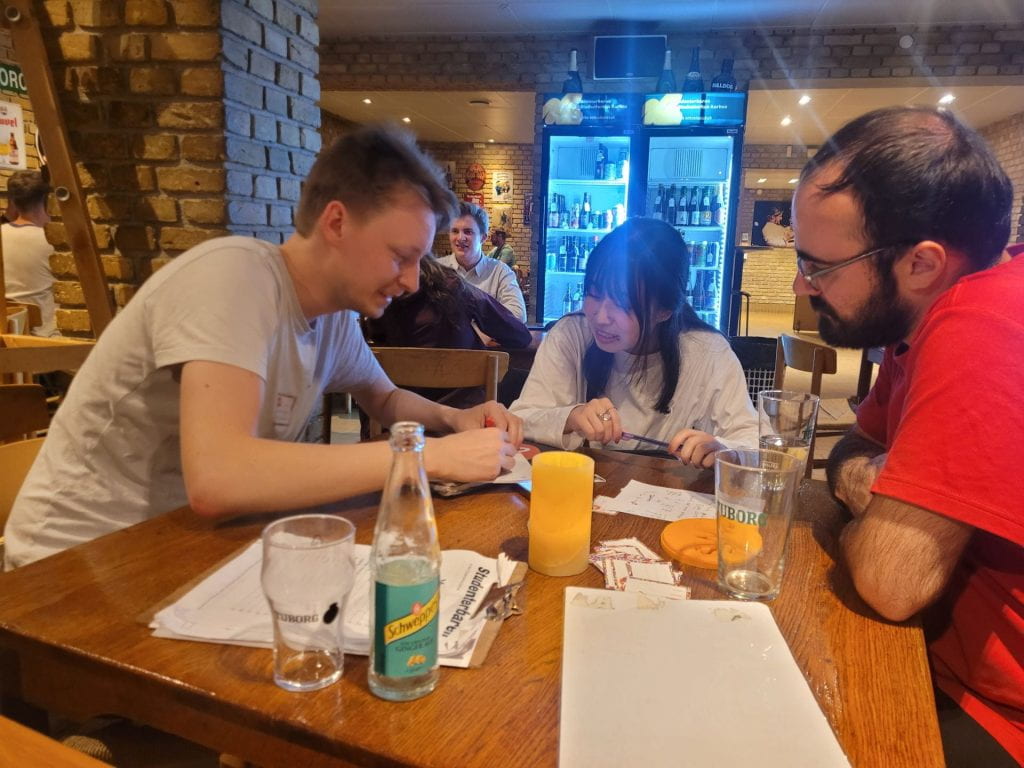Participants at the Swap Language event in conversation
By Jack Wilson and Jaewon Han
A Dane, Spaniard and Japanese walk into a bar. What happens next is no joke, but a chance for people from different places to share in language learning. The bi-weekly Swap Language event held its first edition of the school year August 30 at the bar in the Studenterhus Aarhus, the local student centre.
Though beginning with a modest four participants (organizers included), the hosts were optimistic that participation will grow over the year. Those in attendance mostly conversed in Spanish and Danish, also learning a couple words of Japanese.
“In my case, I have been learning some Danish and I want to improve it,” Ginés Canneto Picón said. Originally from Spain, Canneto Picón doubled as a student and teacher as he participated in the exchange. “I think it’s a nice environment here where you can confidently talk in a language, even if you aren’t completely understood.”
“You never know who’s going to turn up,” organizer Damian Leonhardt said. “It’s very diverse.”
Participants are “mainly international students or international people who want to learn Danish or Danes who want to learn the language they choose,” Leonhardt said. But “sometimes, there are people just on holiday here and want to socialize.”
Swap Language is a company, offering paid Danish and German lessons online, but the platform’s initial goal was to connect language partners. “At some point, someone had the idea that it would be nice if you could just meet up with loads of people and do it more spontaneously,” Leonhardt said.
Leonhardt is German and already speaks Danish, He’s now focused on learning Dutch. Unfortunately for him, Dutch people rarely attend the events. Those looking to learn Spanish or Danish typically have much more success, he said. “Some people really find language partners” and gain confidence and ability, he added.
Though few participants arrived this time, Leonhard said he hoped attendance would return to its former level. “It would be nice if we could go back to 30 people like we did in spring last year.”
Canneto Picón said he hoped to return to future events and learn in what he considers a positive environment. “It’s kind of a safe space.”
